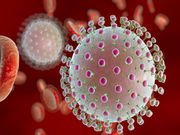Report only addresses physical abnormalities present at birth; developmental issues may occur later
FRIDAY, March 3, 2017 (HealthDay News) — Pregnant women infected with the Zika virus are 20 times more likely to have an infant born with certain birth defects as mothers who gave birth before the Zika epidemic began, according to research published in the March 3 issue of the U.S. Centers for Disease Control and Prevention’s Morbidity and Mortality Weekly Report.
The researchers looked at the incidences of brain abnormalities, including microcephaly, neural tube defects and other early brain malformations, eye defects, and other central nervous system problems among infants born in 2013 and 2014, before the Zika virus began circulating in South America. The researchers found that 2.86 infants in every 1,000 births had such birth defects. However, the proportion of babies with these types of birth defects who were born to women with Zika in 2016 was about 6 percent — 58.8 of every 1,000 infants.
To come up with the incidences of birth defects before Zika, the researchers looked at three programs that keep track of birth defects — in Massachusetts, North Carolina, and Georgia. The investigators believe that incidences of birth defects in these three locations are representative of the United States as a whole. To assess the effects of Zika, the study authors compared that baseline number with the number of birth defects among pregnant women with Zika, as listed in the U.S. Zika Pregnancy Registry. The researchers found 747 infants and fetuses with one or more of these defects from the programs in the three states they analyzed. Brain abnormalities, including microcephaly, were the most common conditions reported.
Janet Cragan, M.D., a medical officer in the birth defects branch of the CDC, noted that in this report the investigators only looked at the physical abnormalities present at birth. Although Zika can cause other developmental issues later, Cragan doesn’t believe they have a handle on the extent of those problems yet. “We don’t feel we have data on the full range of outcomes that may occur,” she told HealthDay.
Copyright © 2017 HealthDay. All rights reserved.








